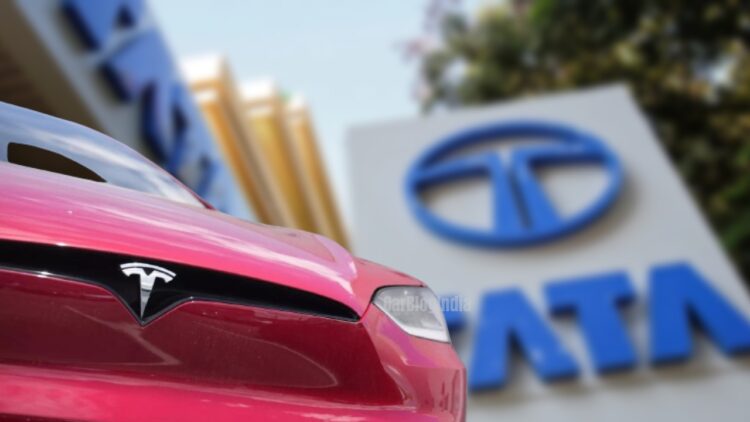As Tesla eyes the Indian market, Tata Motors vehemently opposes reduction of import taxes. As per Reuters, it emphasizes the need to safeguard domestic interests. This comes in response to India contemplating a new policy to boost local manufacturing and facilitate Tesla’s India entry.
You may also like: Production-Spec Tata Sierra EV is the Common Man’s Land Rover Defender
Tata Motors Opposes Tax Cut
Tata Motors, meanwhile, is actively resisting the government’s plan to slash import taxes. The company argues that altering the tax regime, which currently favours local players, could disrupt the investor’s sentiment. This will, in turn, adversely impact the entire domestic industry. So, Tesla’s request for lower import taxes, crucial for its local plans, faces resistance from Tata Motors.
The Indian carmaker contends that investors had made decisions based on the existing tax structure, and any modification could pose risks to future fundraising and destabilize the industry. In fact, Tata urges the government to provide additional support to local EV manufacturers as they’re in an initial growth stage. Lowering duties for foreign players, Tata argues, could undermine the competitiveness of the domestic industry.
You may also like: Maruti’s Tata Nexon EV Rival Less Than 15 Months Away!
You may also like: Tesla Cybertruck Deliveries Start Today – Will it Come to India?
Government’s Dilemma
Having entered the EV market in 2019, Tata Motors has become a significant player. This year, 74% of electric cars sold are Tata models. The company’s $1 billion valuation in 2021 reflects investor confidence. And Tata fears that lower duties for foreign players will hinder future fundraising activities. India faces the challenge of balancing the concerns of local automakers, including Tata Motors, with its goal of facilitating easier entry for foreign players like Tesla to boost the EV sector. Prime Minister Narendra Modi’s vision aims for 30% of annual car sales in India to be electric by 2030, a significant leap from the current 2%.
As the tug-of-war between Tata Motors and the government unfolds, the fate of EV import taxes in India remains uncertain. Striking a balance between supporting local industries and welcoming global players is a delicate task, and the forthcoming policy decisions will shape the future landscape of India’s EV market.
You may also like: Hyundai Ioniq 4 Makes for a Sleek Tesla Model 3 Rival



